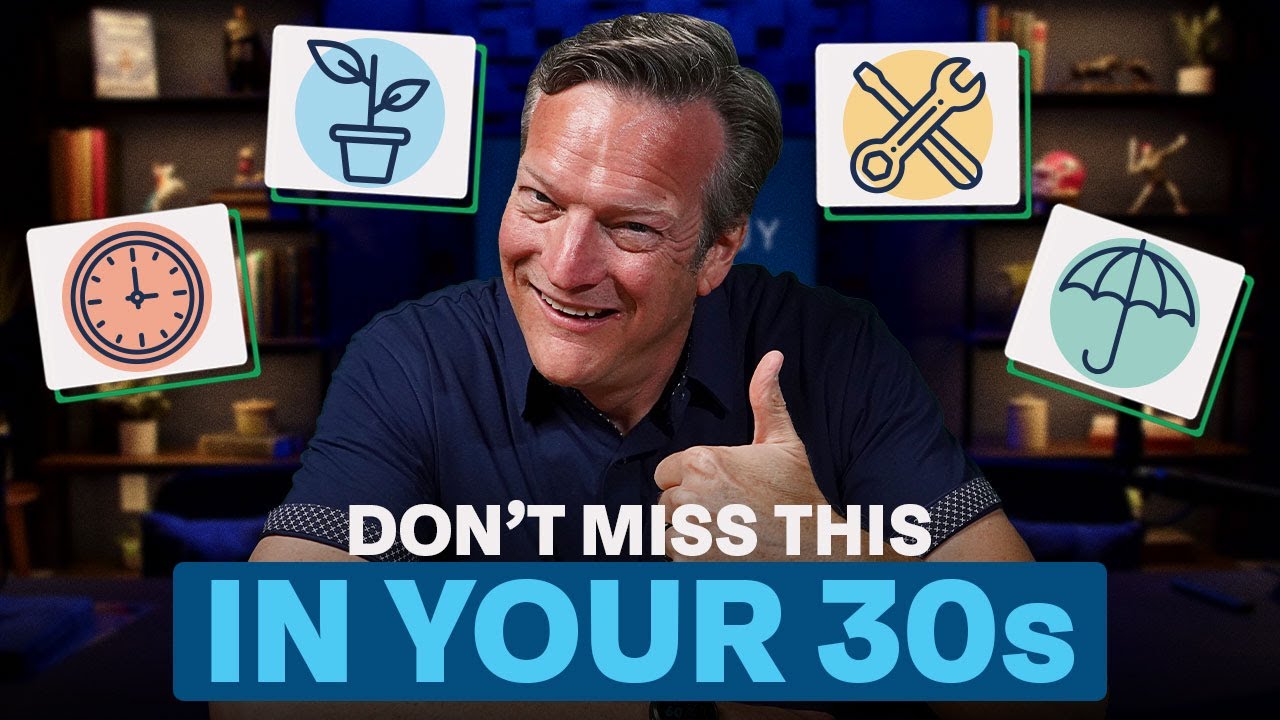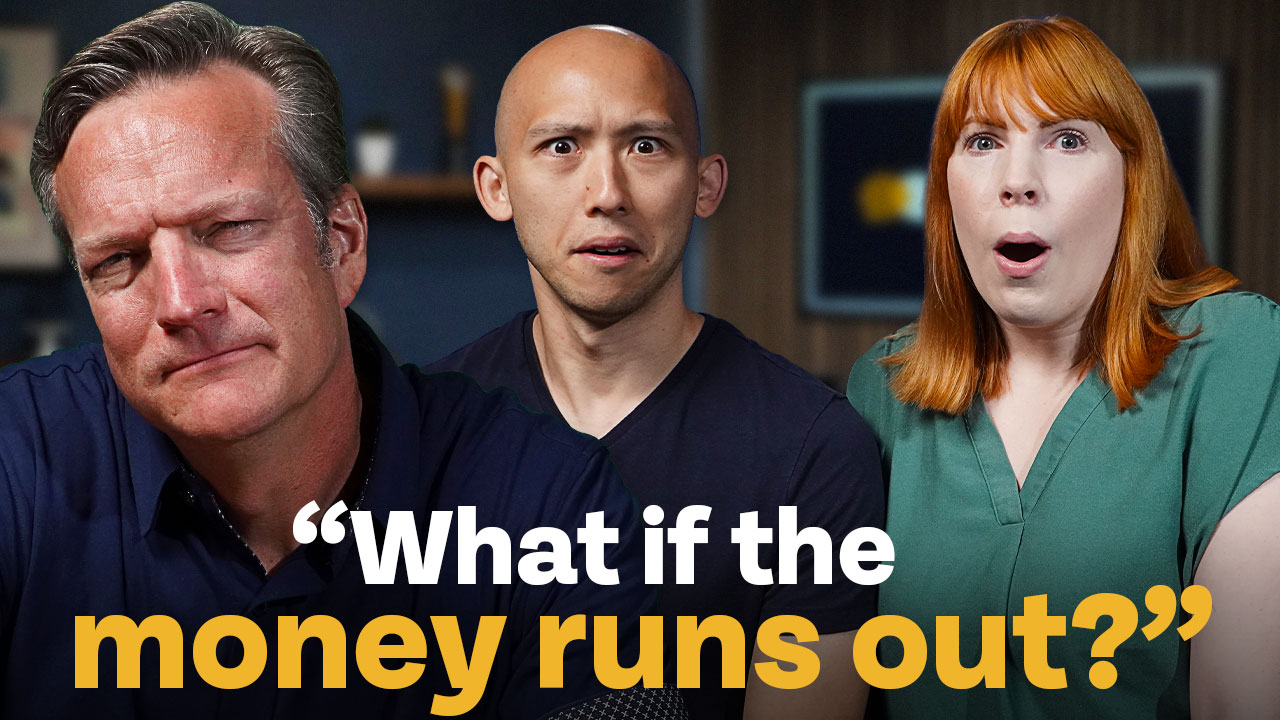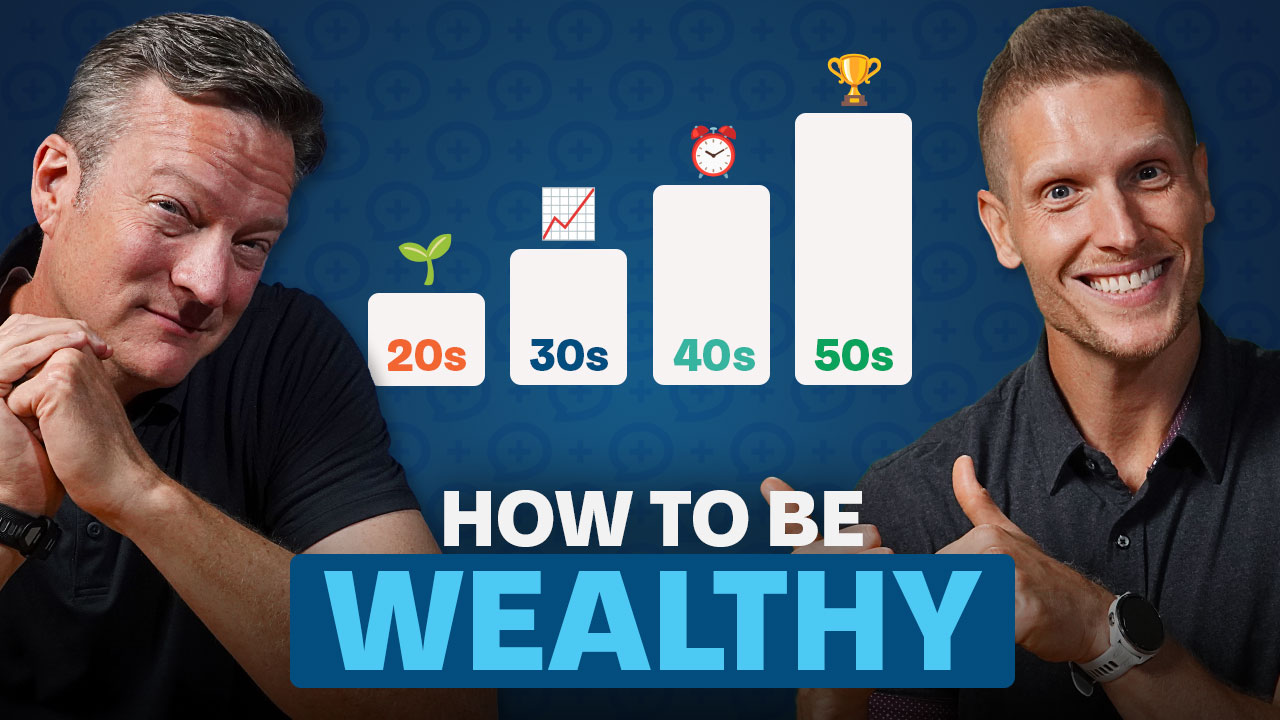Next up, we've got one from Ramona. It says, "The most recent quarterly housing data came out, and housing prices are down nine percent from the fourth quarter of 2022 to the first quarter of 2023. What would you say to someone who's watching this, and should they wait for the prices to go down and take that opportunity with the lower house prices, or is it still just buy when you need a home, no matter what's happening? What do you think?" Okay, Brad, I'm gonna reframe it. By the way, did this person say where they live? They did not. Team crash is out there celebrating. Yeah, do you see Team crash? I think that they pulled out, they got party hats on, they're blowing kazoos, but you just can't hear them.
So okay, so housing prices have come down some. I think there's a bigger question that needs to be answered here because it sounds like Ramona's... I said, okay, well, housing prices are down. Should I jump on this opportunity? Or maybe she's asking, 'Housing prices are down. Are they going to go further? Should I wait?' I am a proponent. I think when it comes to making gigantic life decisions like buying a house, which for most people is the single most expensive purchase you will ever make, I tend to fall into the camp that I would rather life dictate that decision than the present market dictate that decision. Meaning, if Ramona, you've decided that based on my family situation and my job situation and all of the other factors—my timeline, my income security, my down payment, my cash flow—with all those things, buying a home makes sense for me right now, then I don't think there's anything wrong with pursuing buying the home, even if right now it's down nine percent. But maybe a year from now it's gonna be down 19%. Could you have gotten a better deal? Yeah, maybe.
Or if you really fast forward, and we know that when we buy houses, when we do real estate purchases, it's supposed to be a 5, 7, 10-year decision, is it gonna matter if you didn't get the absolute very best price, or is it going to matter if you overpaid a touch, especially if you're in the house that you know you want to be in, that makes sense, that you love? So I would say, let that dictate it. Now, perhaps you're on the other opportunistic side. You say, 'Man, housing is down nine percent. I gotta jump before this thing comes back. It's gonna come rearing back. If interest rates come back, housing market's going to improve, and everything's gonna change.' I would not let the shiny opportunity of a house force you into making a poor decision, meaning, 'Okay, I'm gonna move on the house, maybe before I have the right down payment or maybe before my cash flow is substantiated or maybe before I know my family situation is going to look like or where I want to live or what my job security is like.' Because what you don't want to do is get a really great deal on a house you still can't afford, you did yourself no benefit there.
So I think my opinion when it comes to buying houses, I am less interested in what the market is doing when it comes to my primary asset. Now, if I'm buying a rental property or another piece of property, then yeah, I'll take in market factors. Agree, disagree, we want to fight? Well, I think, go to moneyguy.com resources. I want you to look at our house buying resource that we have because I want you to run through it through that lens because it's going to ask you a few questions about how long you're going to live in this house, and you can kind of measure how high up on the hot scale are you. I mean, is this something that you've got to have a house next week because you got a growing family? That's unrealistic. Do you need a house in the next six months because of a growing family, or is this something that's just a lot of uncertainty still that maybe this is a little softer decision and you're just trying to figure it out for yourself? Because this is what I need to share with you, load you up with, is you first need to understand how real estate markets recover versus what other financial markets will cover.
Typically, with stock markets and other financial type of places, it's what's called a V-shaped recovery. Is that you will get in a situation where everybody gets all hot and bothered and overbuys everything, drives the prices up. And then, we go through these cycles where the market starts getting beat up. We go into bear market status with the market losing 20 percent. We drive it down to where the irrational selling kicks in, and the market gets to evaluation, and it's like ridiculous. And people then immediately realize, 'Oh my gosh, we overdid this thing.' And that's why it's called a V-shaped recovery. It's because you see it. It's the rubber band effect. You pull the rubber band down, the speed that you pull down the rubber band, the faster it kind of propels up. That's why the stock market's such a unique thing. That's why you have to be so careful with the timing.
Now, I will say real estate historically has more of a U-shaped recovery, meaning that it goes down, and then it kind of just drags down for a while. I mean, think about the Great Recession. Great Recession, it didn't take real estate really until—I mean, it started going bad in 2008, but really, it wasn't until the full effects were starting to be felt late 2009, all the way through really late 2011, maybe even early 2012. That's how long it dragged. You contrast that with the stock market. Stock market in 2009, everybody is throwing confetti, they're all celebrating because, yeah, because the market got its teeth just crushed in 2008, 2009, we realized it was overdone, and it was off to the races, making money. Meanwhile, real estate's just like, 'Oh my gosh, who wants real estate? Real estate's just the thing nobody wants at this point.' So I tell you, pay attention to the way real estate papers are covered, because this could drag on. I don't know if you— I'm not gonna call it stagflation, but it's a weird, weird time situation.
So that's why it goes back to, bringing it full circle, Seinfeld-esque, go look at the house buying resource, see what your life needs, because housing goes beyond the finances. I lived in a house in Georgia from 2003 to when I finally sold it in 2019 and lost money on the transaction. I kid you not, I lost money. How do you buy a house and own it for close to two decades, and that thing never made a dollar? I mean, I actually lost money on it. I still have no regrets about it because I raised my family in that house, I made great memories with neighbors, I still go on trips every year with some of those neighbors, my friends. Yeah, you lived with my family for a while while you were making the transition up here. There's a lot of great memories. So housing can go beyond the finances, but it was also because I had the baseline of understanding what my income could afford so that it was more of a use than a financial. Now, look, it's great when that use asset generates things for your finances too, but see how this all fits. For more information, check out our
free resources.














